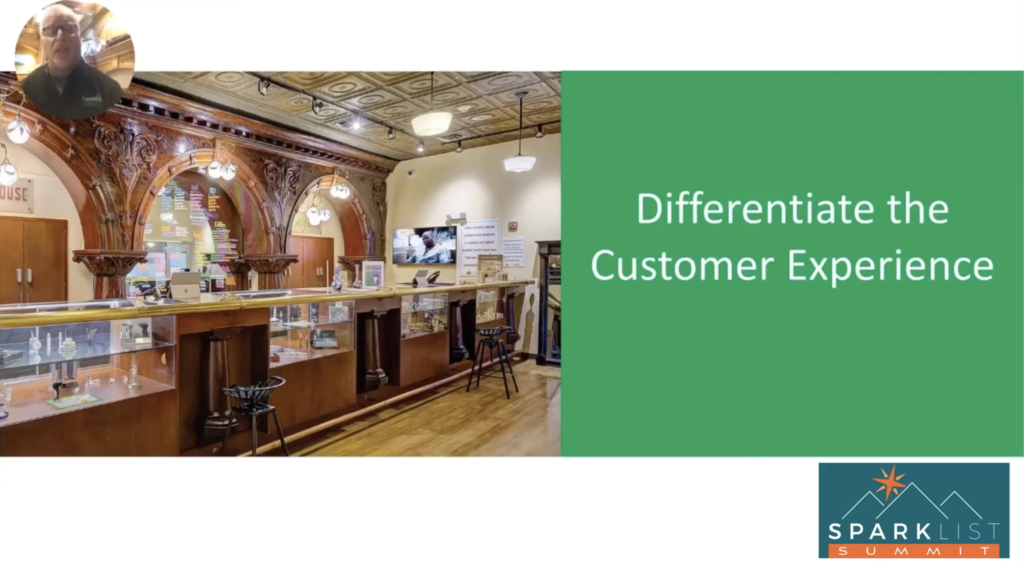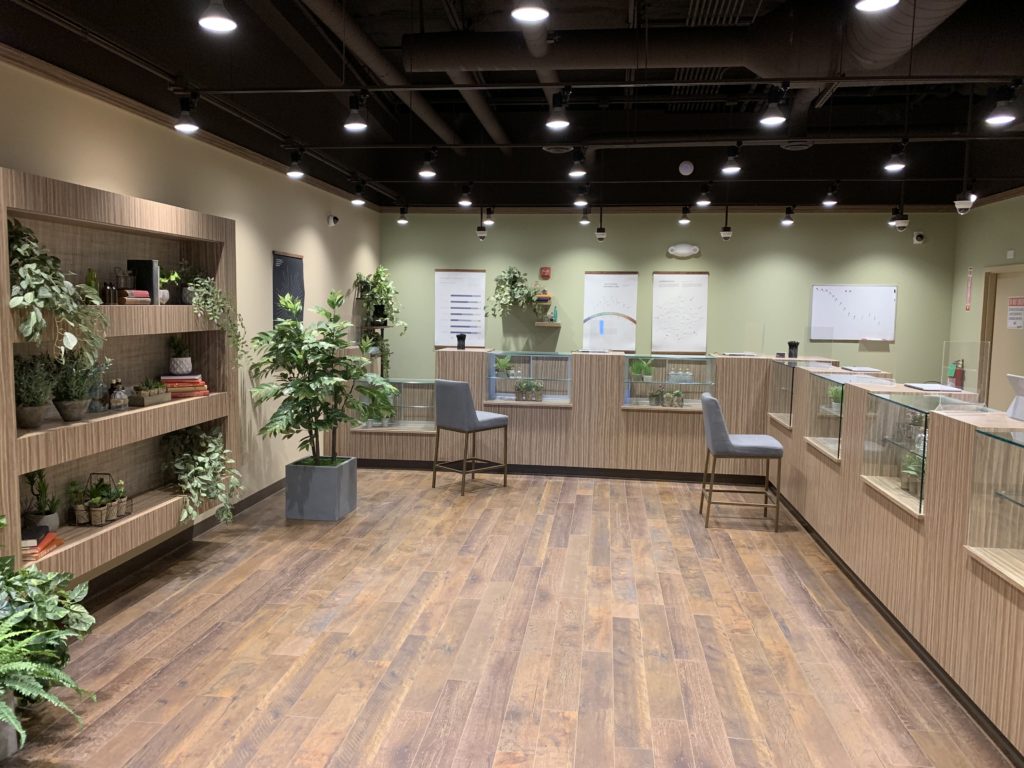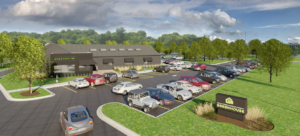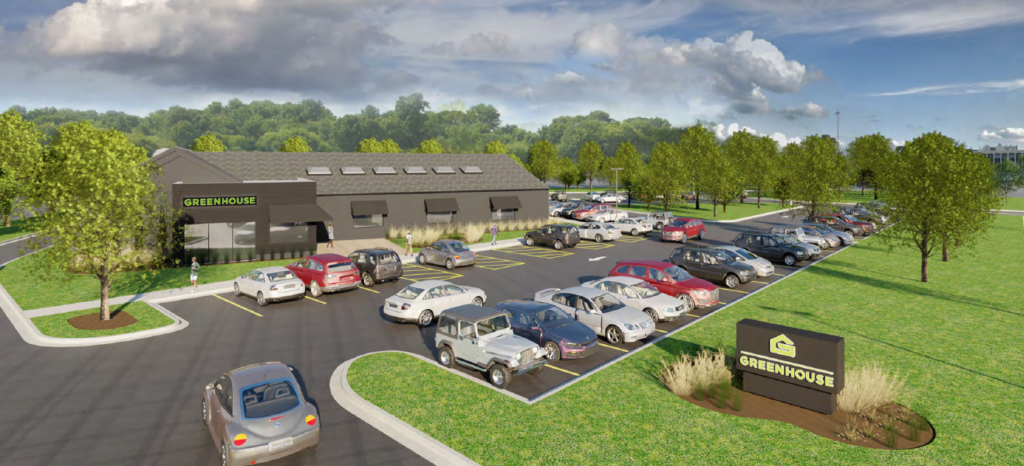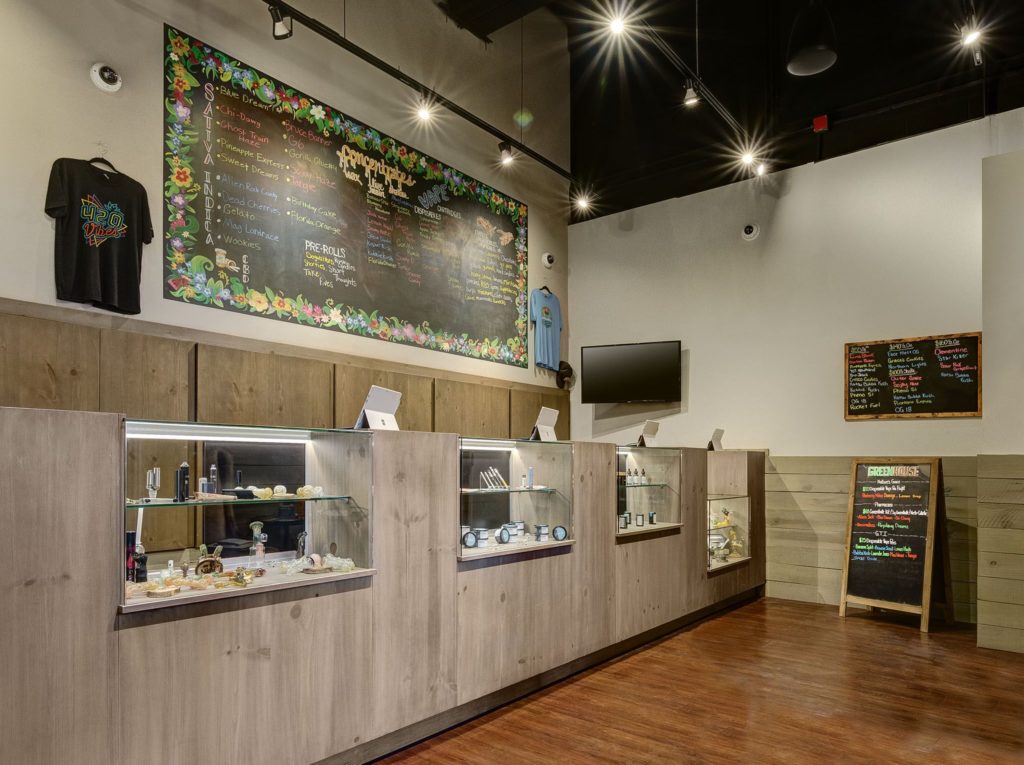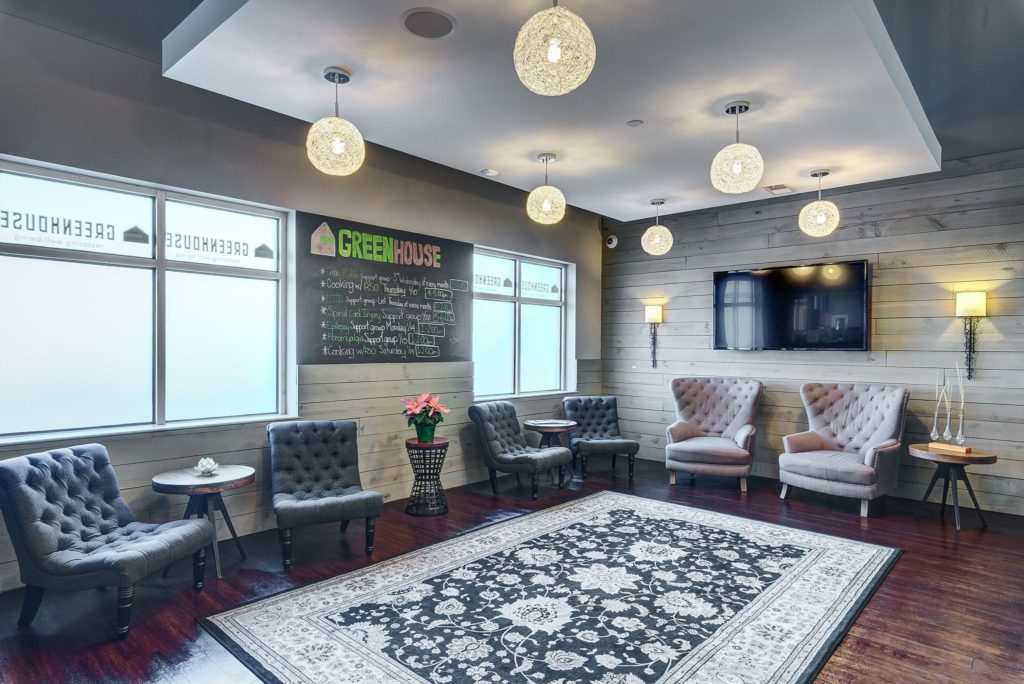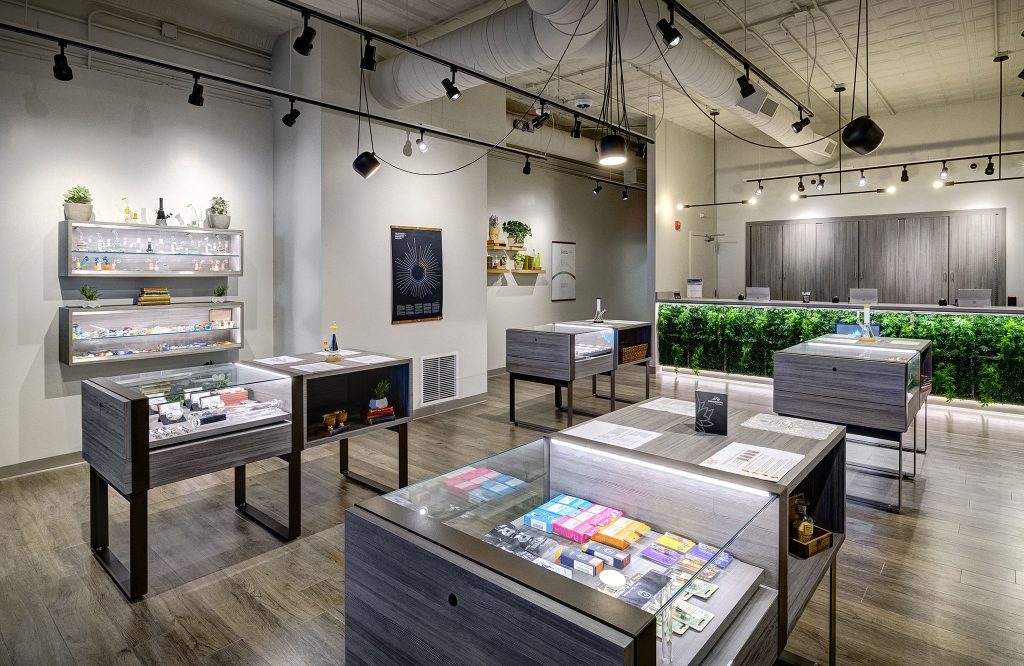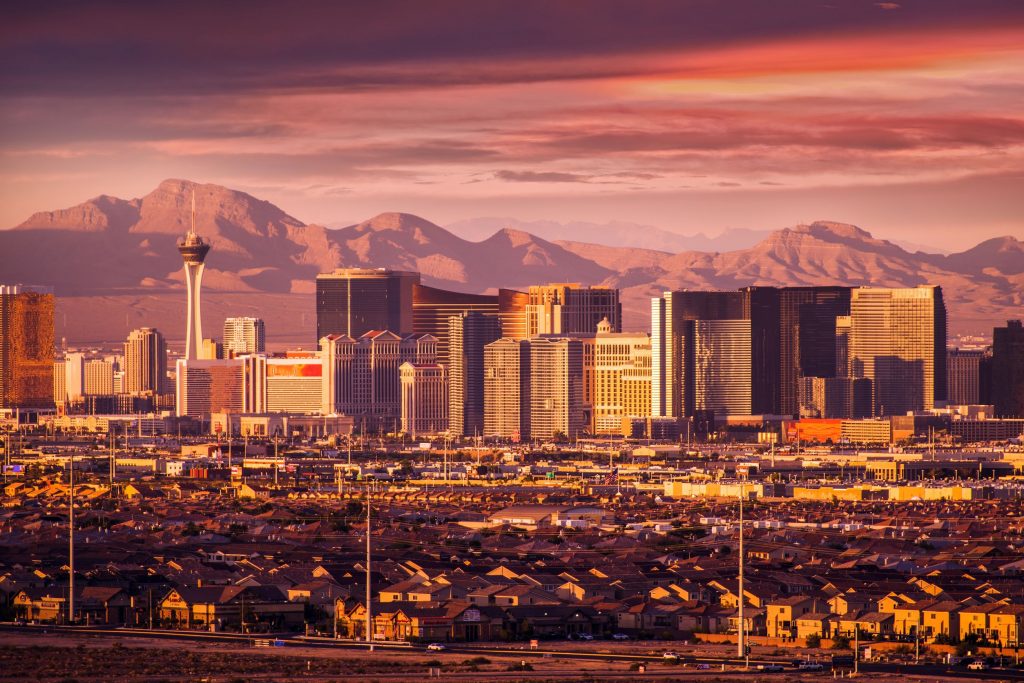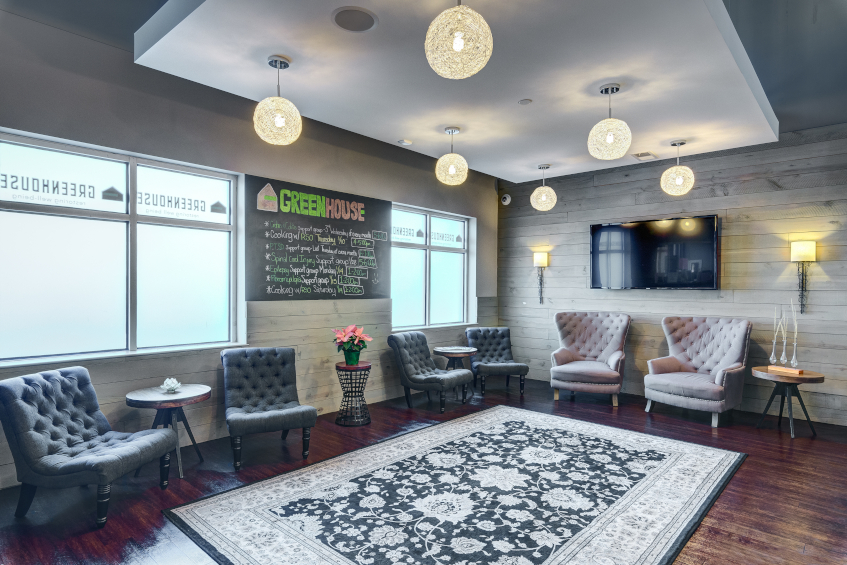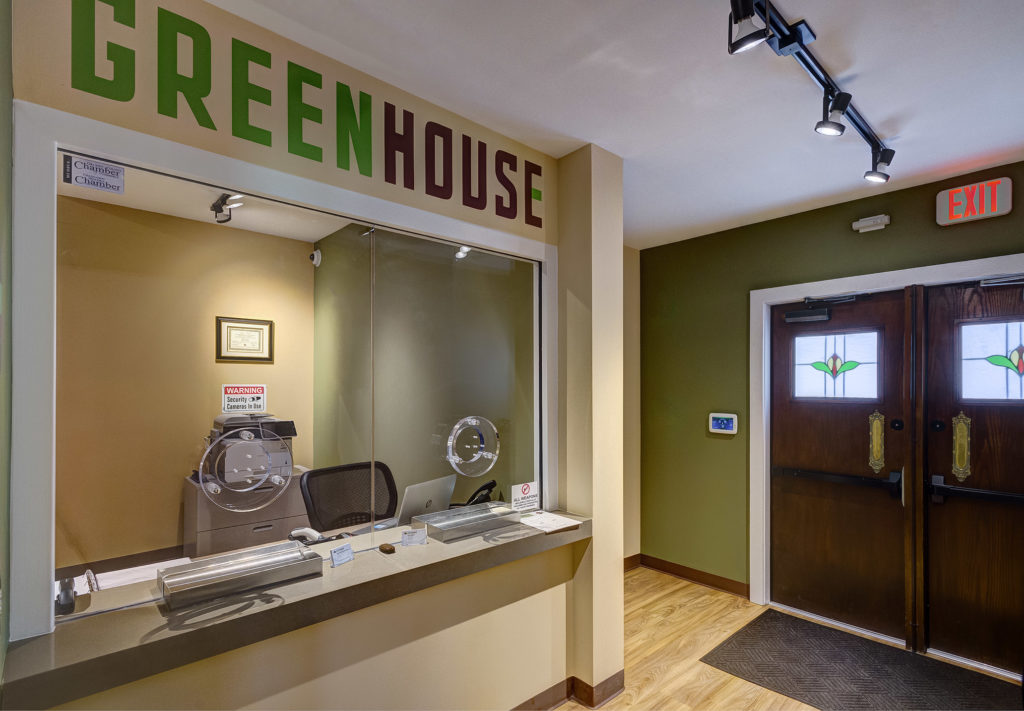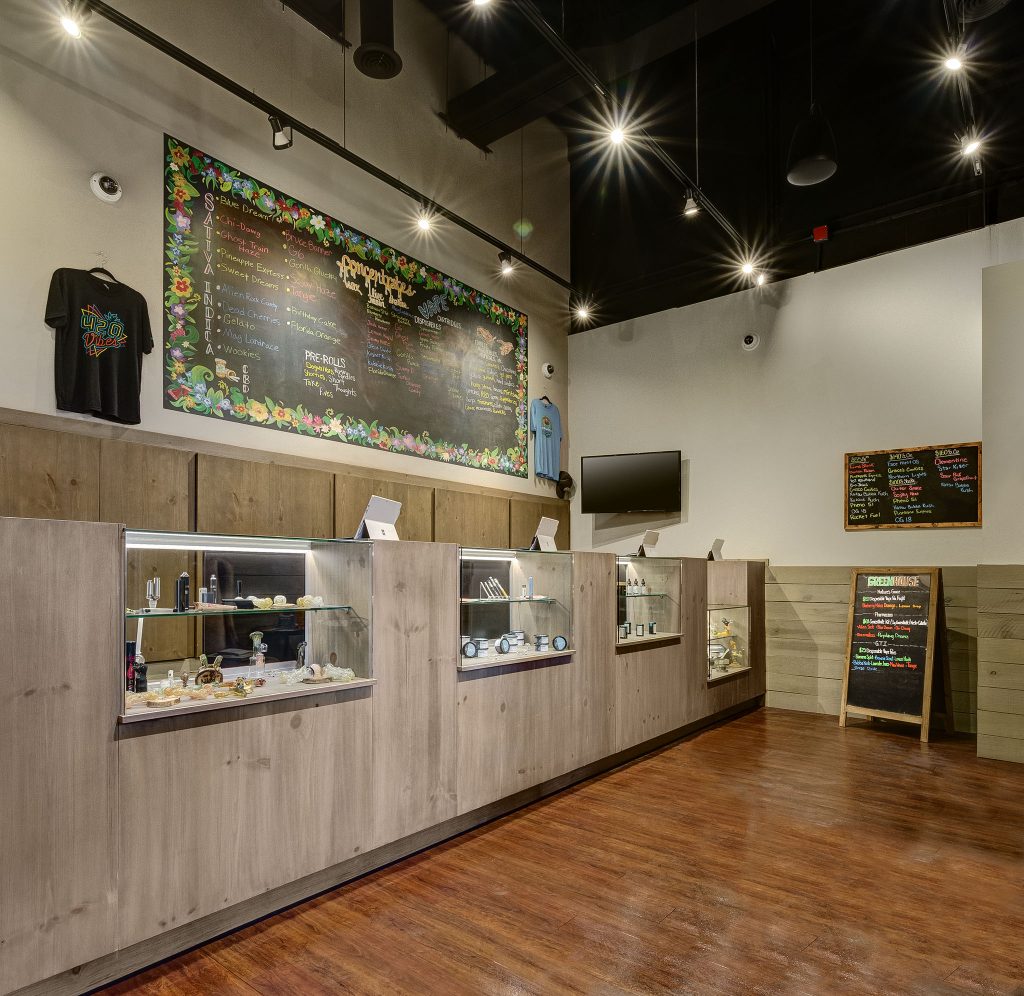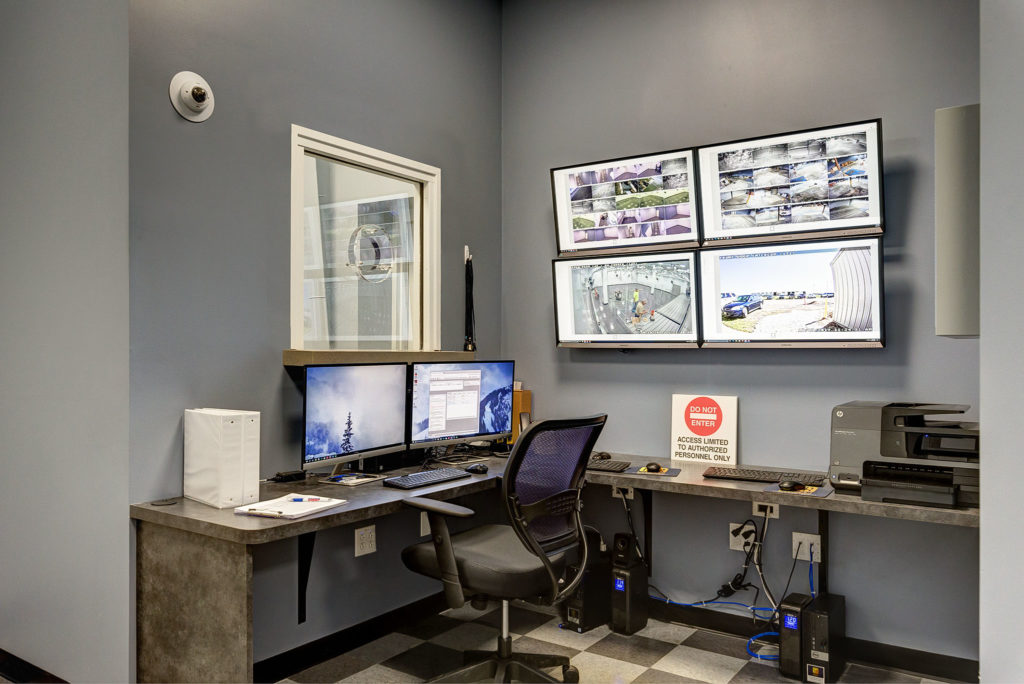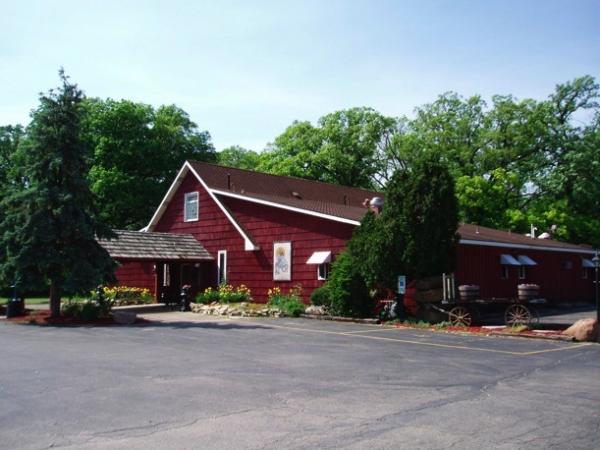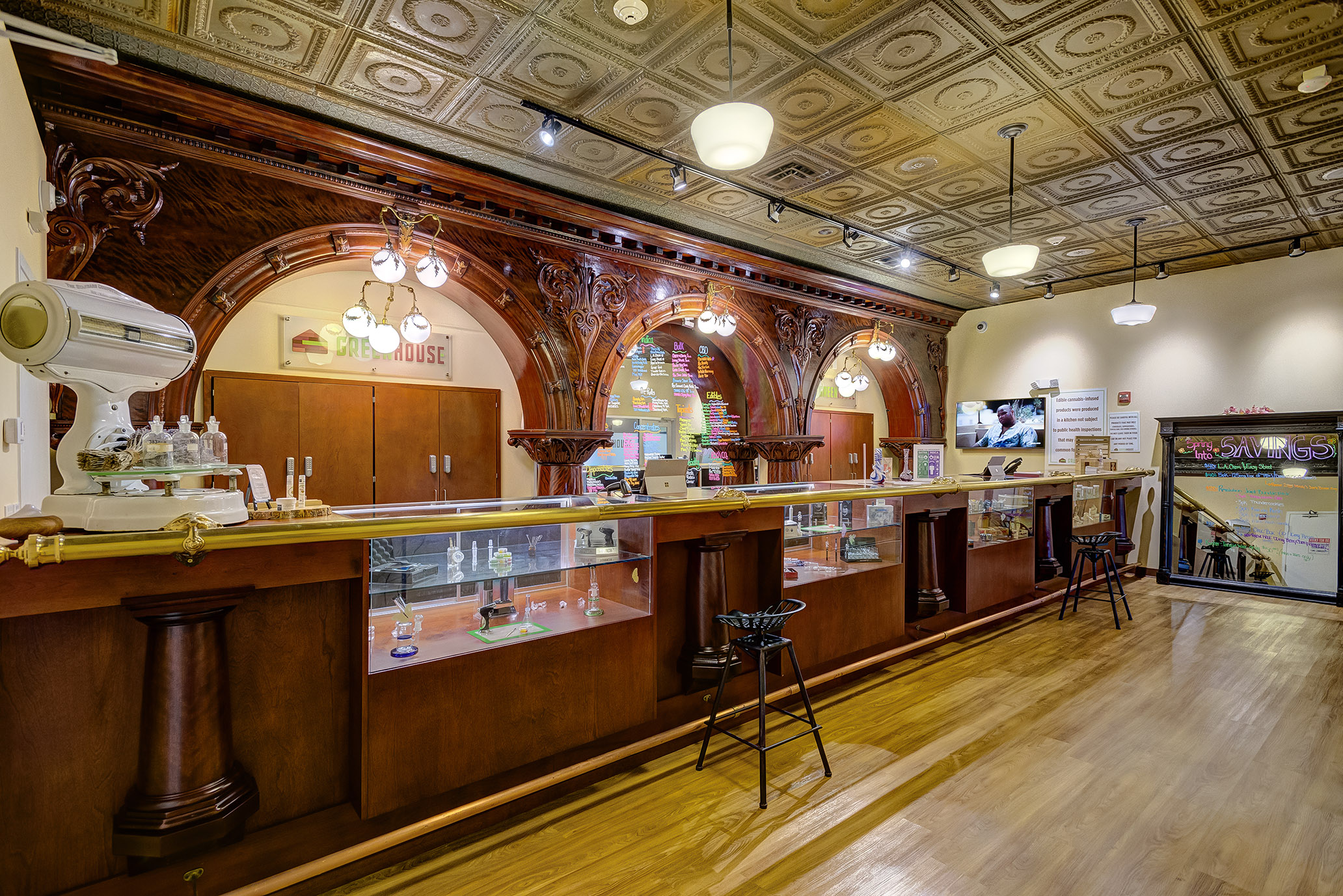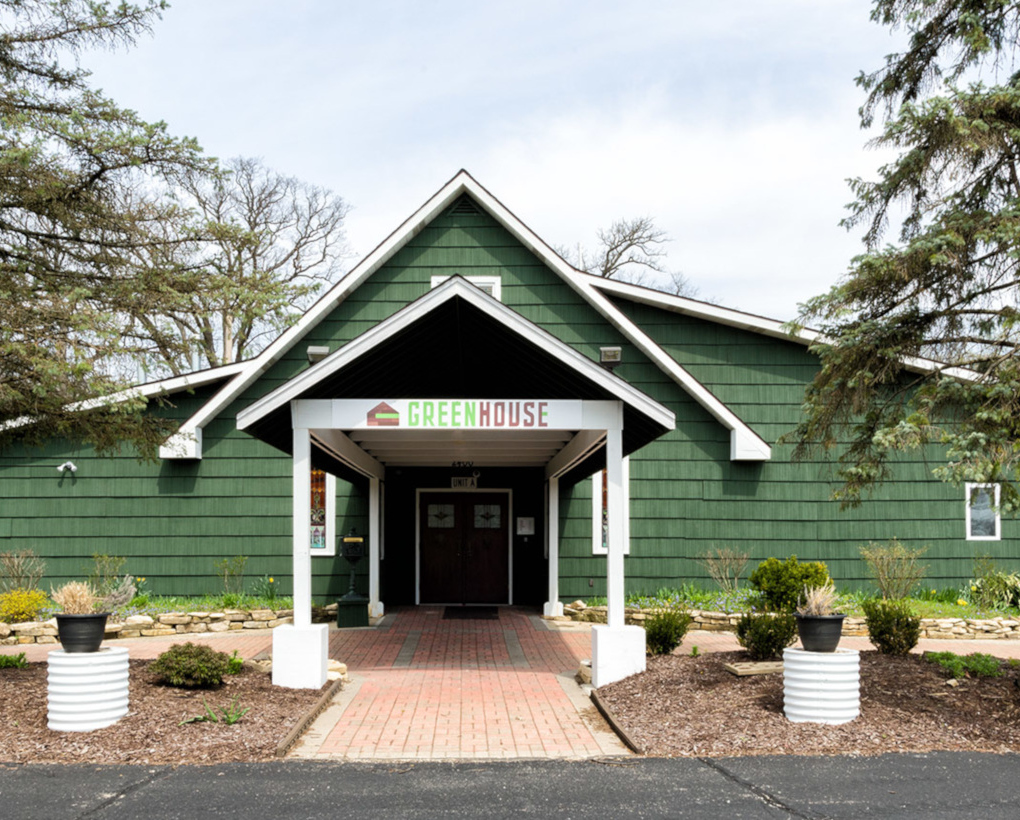Category: dispensary
Avoiding Common Construction Mistakes as a New Cannabis Licensee
Cannabis Facility Construction Principal, Andy Poticha, spoke last month at the inaugural Sparklist Summit, hosted by Supercritical. Illinois applicants and cannabis industry stakeholders learned about “Avoiding Common Construction Mistakes as a New Cannabis Licensee.” Listen here to the video.
https://www.youtube.com/watch?v=QBY9XpRTH4M&feature=emb_title
Building Your New Dispensary: Avoiding Common Design-Build Mistakes as a New Licensee
So you’re planning a new cannabis dispensary – congratulations! Whether this dispensary is your entrepreneurial dream come true or you’ve been down this road before, once you confirm your license, you’ll want to begin building out your location as quickly as possible. Our teams, currently building dispensaries across Illinois and other States, can help steer you through the unique maze that is the cannabis construction process.
Building a new dispensary is not as simple as it sounds. Dispensaries must offer the security of a bank branch, the compliance of a pharmaceutical company, and the aesthetic of a high-end retailer.
As experts in the design-build construction of cannabis facilities, our teams have been in the trenches building dispensaries, cultivation centers and processing labs since 2015, including a national flagship dispensary in Northbrook, currently under construction. We have been involved in more than 30 dispensary, cultivation center and processing lab projects in nine states since 2015. Currently, we are leading renovation projects that offer more than 35,000 new square feet of cannabis cultivation and dispensaries customized for the needs of both medical and recreational cannabis customers.
Here are a few ways you can jump ahead of the curve:
Differentiate the customer experience. Buying cannabis in a regulated dispensary should feel easy, welcoming and natural. Designing for the customer experience, creating welcoming sales environments, while remaining compliant with regulations, is where dispensaries differentiate themselves from the competition. One reason this is so important: with strict supply chain rules in place, many cannabis products are highly commoditized. If your product is a commodity, the customer experience becomes even more important.
Prioritize compliance or suffer the consequences. To maintain product supply and operational retail sales, stick to strict protocols and carefully follow building codes related to the handling, storage and distribution of cannabis throughout the supply chain. In Illinois, building code inspections are unique to each municipality, with enormous differences from one community to another. Be sure your design-build construction partner knows the right questions to ask, and the pitfalls that could come up at each inspection milestone.
Use a design-build approach. Design-build integrates your design and construction teams from the beginning, reducing surprises and streamlining your budget throughout the process of envisioning and construction your dispensary. When your architect and contractor are working together, you’ll find you have more time to focus on running your cannabis business, with less time spent in meetings about your space. In addition, a design-build model allows for a single point of accountability. At CFC, we use our four-step design-build process to ensure alignment and high-touch customer service throughout your project.
Your contractor shouldn’t be learning on the job. Your design-build construction partner should be respected in the industry and be able to speak to ‘tales from the trenches.’ While legalized recreational cannabis may be new to Illinois, there are companies like us that have been building for both medical and recreational cannabis for many years. You should never have to hear ‘let’s learn this together.’
Don’t let the pandemic get you down. As an essential business, construction has been building cannabis facilities throughout the COVID-19 shut-down period and continues today. With the right protocols in place, there’s no reason the construction of your dispensary can’t press forward. To understand more about how our crews stay safe, you can read our National Cannabis Industry Association (NCIA) blog post from June 2020 on how to expand or renovate your cannabis facility while observing social distancing.
Choose a contractor with experience. For nearly five years, CFC has worked with numerous cannabis companies, including vertically integrated multi-state operators (MSOs). “Partnering with CFC, we have been thoughtful about connecting the design/build process with our customer experience and compliance objectives,” said Mitch Kahn of Greenhouse Cannabis. “Together, we identified and solved potential issues early in the design/build process, so that the build-out is supportive of sales, security, and being good neighbors in our communities.”
Need more resources on the design-build dispensary construction process? Here are a few suggestions:
NCIA PODCAST:
https://thecannabisindustry.org/podcasts/cannabis-facility-design-and-construction/
KNOW BEFORE YOU GROW:
https://rejournals.com/know-before-you-grow-secrets-of-successful-cannabis-facilities/
KEY SUCCESS FACTORS:
While cannabis continues to be a fast-paced industry with changes on a daily and weekly basis, it’s no longer brand-new. There’s no reason you shouldn’t have a guide who knows the right questions to ask and can keep you from repeating mistakes of the past.
For more information on working with our Cannabis Facility Construction experienced teams, you can request a consultation here and one of our team members will get back to you immediately.
Construction On Cannabis Dispensary Begins
Northbrook Patch | Jun 17, 2020 – Construction is underway on a new recreational and medical dispensary at 755 Skokie Blvd. in Northbrook. Cannabis Facility Construction, a national, full-service, cannabis design-build construction firm based in Northbrook, announced the news Tuesday. The facility will be run by Greenhouse Group LLC.
The Northbrook location will be a national flagship location for the brand, according to a press release. The site, offering nearly 10,000-square-feet of finished space, is the former home the Rehabilitation Institute of Chicago. The vacant Marathon Gas station at 430 Dundee Road will be consolidated into one lot.
“As their preferred design-build partner, CFC has delivered multiple dispensaries for Greenhouse over the past five years in various states across the country,” said Andy Poticha, principal at Cannabis Facility Construction, in the release. “We are now especially excited to have this opportunity to build their largest flagship location right here in our own backyard.”
Read more at Northbrook Patch
Cannabis Facility Construction Commences Construction on New Flagship Greenhouse Dispensary
NORTHBROOK, IL – Cannabis Facility Construction (CFC), a national, full-service, cannabis design-build construction firm based in Northbrook, Illinois, is pleased to announce the start of construction on a new recreational and medical cannabis dispensary for Greenhouse. Located at 755 Skokie Boulevard in Northbrook, IL, the new dispensary will be a national flagship location for the brand, offering almost 10,000 square feet of finished space.
“As their preferred design-build partner, CFC has delivered multiple dispensaries for Greenhouse over the past five years in various states across the country,” said Andy Poticha, Principal at Cannabis Facility Construction. “We are now especially excited to have this opportunity to build their largest flagship location right here in our own backyard.”
Construction commenced in May, revitalizing the site and its surrounding area that had been vacant for quite some time.
The location’s sleek, modern, industrial design will represent a new look for the Greenhouse brand. An open floor plan with high vaulted ceilings, skylights, abundant natural light, and easy-to-browse product displays will complement the wood and masonry structure. To create a differentiated and welcoming customer experience, careful consideration has been given to both customer traffic flow and the reality of social distancing. The design ensures all points of sale are six feet apart so transactions take place with proper social distancing in mind and create a sense of ease.
In addition to the retail space up front, there will also be back office space for processing, a secure, oversized vault for substantial inventory storage, and a highly advanced security system throughout.
CFC’s work complements exterior infrastructure improvements happening simultaneously to revitalize the surrounding area with the addition of natural landscaping, a retention pond, large parking lot, and new turn lane from Skokie Boulevard.
A leader in serving the construction needs of the cannabis industry since 2015, Cannabis Facility Construction has built more than 30 cultivation centers, processing laboratories and retail dispensaries customized for the needs of medical and recreational cannabis clients in nine different states.
In 2020, Cannabis Construction Must Offer Security of a Bank, Compliance of a Pharmaceutical Company, Aesthetic of a High-end Retailer
Legal recreational cannabis is a new industry in Illinois—and it’s in dire need of customized facilities. The first month of recreational cannabis sales in Illinois amounted to nearly $40 million. Sales figures spell opportunity both for cannabis companies and for experts in building special-purpose facilities for the industry’s stringent regulations and experience-driven customers.
Andy Poticha, Principal at Cannabis Facility Construction (CFC) has been involved in more than 30 cultivation, processing center and dispensary projects in eight states since 2015. He’s leading renovation projects that offer Illinois more than 35,000 new square feet of cannabis cultivation areas and dispensaries customized for the needs of recreational cannabis customers.
“To become recreational cannabis users’ preferred dispensary, new cannabis license holders must prioritize both compliance and customers in their facility design,” Poticha observes. The design/build process must support two core objectives:
- Prioritize compliance or suffer the consequences. To maintain product supply and operational retail sales, stick to strict protocols and carefully follow building codes related to the handling, storage and distribution of cannabis throughout the supply chain.
- Offer a differentiated customer experience. Product commoditization and restricted in-state cannabis sourcing leads to stiff competition between dispensaries.
“Cannabis companies need to offer the security of a bank branch, the compliance of a pharmaceutical company, and the aesthetic of a high-end retailer,” said Poticha. “Designing for the customer experience, creating welcoming sales environments that are compliant with regulations, is where dispensaries can find true opportunity to differentiate themselves from the competition.”
For nearly five years, CFC has worked with numerous cannabis companies, including Grassroots Cannabis, a vertically integrated multi-state cannabis company. For co-founder Mitch Kahn, CFC has helped Grassroots embrace these seemingly competing objectives into a cohesive customer experience.
“Partnering with CFC, we have been thoughtful about connecting the design/build process with our customer experience and compliance objectives,” said Kahn. “Together, we identified and solved potential issues early in the design/build process, so that the build-out is supportive of sales, security, and being good neighbors in our communities.”
What’s New for America’s Most Popular Cannabis States?
2019 has been the year of the cannabis plant in the United States. New states have joined the recreational cannabis club, young medical programs are exploding, mature ones are diversifying, and the Northeast is inching along. Here is the latest on the nation’s most popular cannabis states.
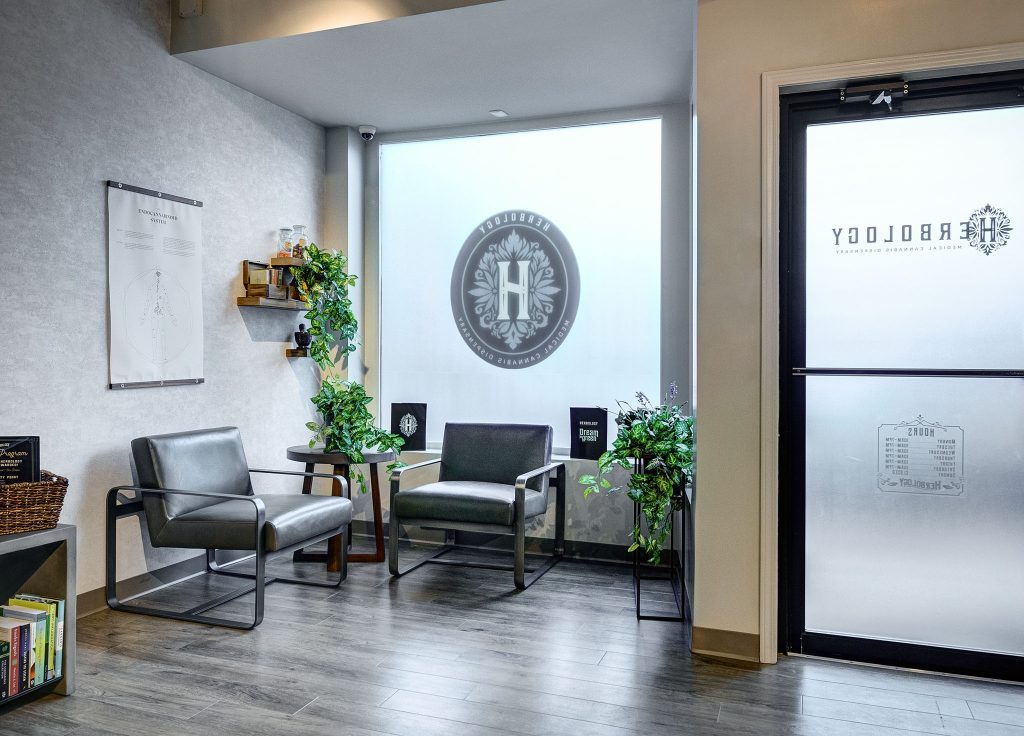
Colorado’s Cannabis Program Adds Versatility
Changes are coming to Colorado’s medical and recreational cannabis programs. House Bill 1230 will allow legal social consumption at businesses like dispensaries, restaurants, hotels, and music venues. Home-delivery of medical cannabis can begin in 2020, followed by recreational in 2021 thanks to the passage of House Bill 1234. In response to the state’s opioid epidemic, Governor Jared Polis signed the MMJ for Opioids Bill, which allows doctors to recommend medical cannabis as an alternative to opioid medications. The medical program also added autism to its list of qualifying conditions. Finally, House Bill 1090 opens Colorado’s cannabis industry to out-of-state investors and capital, including publicly held companies and large venture funds. Per Westword, “The bill would also permit investors to own smaller stakes (less than 10 percent) in a cannabis business.”
Illinois Hits a Snag
According to the Illinois Regulation and Tax Act, the state’s 55 existing medical dispensaries would have first dibs at applying for a recreational sales license at the same site, plus a second license for one at a different location. However, recently, The Illinois Department of Financial & Professional Regulation, the agency in charge of issuing those initial recreational-use licenses, announced a different interpretation: “…if a medical dispensary wishes to relocate for any reason — whether it’s for more space or if a home municipality bans recreational sales — it forfeits its right to also sell recreational marijuana,” per the Chicago Tribune.
This has created chaos for companies like Green Thumb Industries (GTI), which was awarded a retail license by the state in its Naperville location before the city council opted out of the program. “Naperville’s 6-3 vote on Tuesday, September 3 (2019) marks one of the first major roadblocks for Illinois’ marijuana industry as it prepares for recreational sales next year,” the Chicago Tribune added. “Whether GTI, or any other company, can open a store for recreational marijuana, could be reconsidered by the council after a potential non-binding voter referendum.”
Other municipalities in Chicagoland to ban recreational stores include Bolingbrook and Wheaton.
Oklahoma Medical Cannabis is Soaring
Previously, we wrote about the launch of Oklahoma’s medical program, and nothing is halting its trajectory toward a projected value of $250 million per year by 2025.
As of August, 2019, there are 162,273 registered medical cardholders, a number that’s been growing by up to 10,000 per month for the last year. To put those numbers in perspective, that’s 4 percent of the state’s total population.

There’s a pretty easy explanation for this success: patients don’t have to meet qualifying conditions, and instead only need a referral from a physician. There are also no caps on dispensary licenses, which is why the current number is over 1,700. Additionally, the barrier to entry is low. According to the Arkansas Times, “The license to grow on a commercial scale or open a dispensary in Oklahoma is a flat $2,500 and a fare thee well, open to any Oklahoma resident who hasn’t had a felony in the past five years. Their law allows cardholders to possess up to a half pound of marijuana, and grow up to six plants at a time. Their law also made possession of up to 1.5 ounces by non-cardholders a misdemeanor punishable by a maximum $400 fine.”
Additionally, High Times Magazine put Oklahoma’s cannabis culture on the map when it held its renown Cannabis Cups in Oklahoma City in August.
Massachusetts Social Equity
As more recreational cannabis businesses come online in Massachusetts, the push for social equity is taking center stage. Real Action for Cannabis Equity (RACE) started in Boston in September, 2019 to address the dearth of minority-owned operators. Per Marijuana Business Daily, “Organizers say they’re frustrated that all but two of Massachusetts’ 184 marijuana business licenses were issued to white operators…black entrepreneurs in Massachusetts who say people of color are being shut out of the lucrative marijuana industry are joining forces to close the gap.”
New York Decriminalizes Cannabis
Though New York state failed to pass recreational cannabis during the 2019 legislative session, a last-minute compromise was reached on decriminalization. According to The New York Times,”Under the new law, possessing between one and two ounces of marijuana will no longer be considered a Class B misdemeanor. It will now be a violation, with fines up to $200. Those found with less than an ounce of marijuana will now face a $50 fine, compared with $150 previously.” In addition approximately 160,000 people will have cannabis convictions expunged from their records.
New Jersey Still has a Chance to Pass Recreational Cannabis
The Garden State saga to legalize recreational cannabis is back on. The state Legislature came up short on votes to pass a new law earlier in 2019, but the law-making body isn’t giving up, envisioning two scenarios:
- Holding another vote for the bill during the lame duck session at the end of 2019 or the first half of 2020
- Putting it on the ballot for the November, 2020 election
Governor Phil Murphy has voiced his preference of passing recreational cannabis through the Legislature versus relying on the ballot box. According to NJ.com, “Such a move would allow leaders to more easily mold and regulate the new marijuana industry. And waiting until next year’s elections means you likely won’t be able to consume weed legally in New Jersey until early 2021, at the earliest.”
Cannabis Public Consumption: The Next Big Industry Development

With cannabis going mainstream and now firmly established as the fastest growing industry in America, business owners and state officials are partnering to create more opportunities for public consumption. Unlike with liquor at bars, restaurants, clubs, etc., one cannot legally purchase cannabis and use it onsite. So what gives? Public or social consumption of cannabis has been viewed as anathema by local governments, especially since it clashes with clean air ordinances. The tide is turning, though, as in the last few months a handful of states have passed new laws allowing licenses for cannabis lounges and other social spaces where consumers can legally consume products.
Alaska
Alaska Lt. Gov. Kevin Meyer (R) signed new regulations into law in March of 2019, issuing permits to businesses authorizing onsite consumption. The so-called “special onsite use endorsement” stipulates that consumption areas need to be physically separated from retail spaces, either by a wall and a secure door or an outdoor patio. The onus is on business owners to provide security plans and adequate ventilation. As is the case with most public consumption programs, local governments in Alaska will have the authority to prohibit onsite use outright or to tighten restrictions, including limiting consumption to vaping only.
California
The birthplace of social cannabis lounges in the U.S., California, is expected to open many more in the next couple of years. San Francisco leads the way with the most cannabis lounges, but recent legislation coming out of Los Angeles County will make municipalities like Los Angeles and West Hollywood the next leaders. LA county has been fielding social cannabis business applications since January of 2018, and West Hollywood changed codes and zoning regulations to allow public consumption in certain cafes and smoking lounges, and recently Assembly Bill 1465 was introduced that will allow smoking, vaping, and eating edibles.

“Another big move: West Hollywood will allow chefs to infuse cannabis into pre-planned and on-demand menus for onsite customers at new restaurants,” according to Forbes. “As the cafes come online over the next 12 months, West Hollywood will have more than double the number of cafes and lounges of any other city.”
Colorado
Colorado is the latest state to pass public consumption. House Bill 1230, set to take effect at the start of 2020, establishes regulations for retail stores to set up social consumption lounges, as well as allowing for mobile and temporary licenses. This means that businesses like music venues, art galleries, yoga studios, restaurants, and hotels can obtain public consumption permits and licenses for limited cannabis sales. There’s also a pathway for awarding temporary licenses for special events.
Colorado’s Marijuana Enforcement Division will process licence applications and serve as the state’s regulatory board. Per High Times “Like any industry’s regulatory requirements, businesses will still have to clear a few hurdles before they can let customers light up. First, business owners and cannabis advocates will have to convince local governments to opt in to the new law. Otherwise, the state won’t award a public consumption license. House Bill 1230 also gives local governments the authority to tweak the rules for public consumption. Towns could, for example, only approve certain forms of consumption.”
Illinois
The Illinois Cannabis Regulation & Tax Act includes an exemption to the Smoke-Free Illinois Act, which prohibits outdoor smoking, allowing cities to determine if they want to permit on-site cannabis use at lounges, bars, restaurants, and other places of business. For now, the state is leaving it up localities to opt in or out to public consumption. The City of Chicago is weighing its options. “The regulations around on-site consumption have not yet been finalized,” said Lauren Huffman, a city spokeswoman in an interview with The Chicago Sun-Times in September, 2019. “We are taking the initial step of introducing zoning regulations so we can start to give businesses certainty around where dispensaries will be located. We have not yet made final decisions around where and how on site consumption will be regulated, but are having ongoing conversations with our partners in the industry, the community and the City Council around the best way to regulate the practice.”
Nevada
Nevada’s recreational cannabis programs began in 2016, and now public consumption licenses will be granted. The Las Vegas City Council in May 2019 voted to allow existing cannabis businesses to apply for permits to open consumption lounges. Clark County Commissioner and former state senator Tick Segerblom, who is also considered Nevada’s cannabis ambassador, told the USA Today Network, “We’re the new Amsterdam. That should be a concern to gaming companies. They’re concerned about (lounges) making money outside the hotels. They’re worried the longer this goes outside hotels, the more established they’ll get. As a business person, I would be concerned too.”
While Las Vegas cannabis businesses hope to cash in on weed tourism, the gaming community wants to wall off its hotels and casinos. The Nevada Gaming Control Board, which has taken a conservative stance on cannabis, brokered a compromise with the city to create a 1,000 foot buffer between gaming establishments and cannabis lounges.
One business that’s not compromising or sparing any expense is Acres Cannabis, a 19,000 square-foot dispensary set to roll out a social consumption lounge that will include a concert hall and full-service kitchen launched with the Morton family of Morton’s The Steakhouse in Chicago.
According to msn.com, “After the city builds an application, 20 dispensaries – already open or forthcoming in Las Vegas this year – can apply for licenses to open lounges prohibited from selling alcohol. The ordinance excludes dispensaries on The Strip, which is controlled by Clark County, not the city of Las Vegas, as well as Henderson and North Las Vegas.”
What State Will be Next?
The new trend of public consumption is expected to expand, especially with new states like Illinois passing adult use programs. Oregon, currently a medical and recreational use state, appears next on the horizon. If passed, Senate Bill 639 would require the Oregon Liquor Control Commission to regulate social consumption businesses and event spaces, allow for the sale of cannabis in these clubs, tasting tours on farms and expanded legal cannabis delivery into private and temporary residences.
The Essential Staff of a Dispensary
Previously, we wrote about the essential staff of a cultivation facility, and now we turn our attention to dispensaries. Cannabis employment is exploding, and 2019 is projected to be a banner year for new-hires. The most in-demand jobs in medical and recreational markets are dispensary positions because these mostly customer-facing staff provide the greatest opportunity to interact with the general public.
General Managers
Consumers enter a dispensary for a transactional and educational experience with the expectation of receiving quality customer service. They survey the products, interact with staff, and either buy or take a pass. It sounds simple, but behind the counter and the scenes it’s much more complex, and it starts at the top with the general manager. This crucial position oversees all functions and operations of a dispensary from interacting with vendors, dealing with law enforcement, and managing inventory to handling returns and of course, hiring, managing, and training budtenders and other staff. Certain medical dispensaries require general managers to be physicians, nurses, or pharmacists.
Budtenders
Budtenders play a critical role in creating a positive customer experience.Consumers, especially those new to cannabis, have lots of questions: What’s the difference between indica and sativa? What strain do you recommend for this or that? How is CBD oil different than oil with CBD and THC? What are tinctures? Budtenders spend the majority of their days working face-to-face with customers and providing knowledge and advice about cannabis products.
Administrative Staff Without people streamlining office functions, a dispensary would fail. Administrative staff are the unsung heroes that ensure dispensaries operate as well-oiled machines. They answer phones, handle customer inquiries, verify medical cannabis cards, and maintain patient records, among other duties.
Cannabis is the fastest growing industry in the country, expanding at an annual rate of 28 percent and expected to reach a value of $146 billion by 2025
Security
There are efforts on the federal level to ease banking restrictions on cannabis businesses, most notably the States Act, but cannabis still remains a cash-only business. As such, dispensaries need physical security to protect assets while not scaring off customers. “While security is a tough game, you don’t want to set a tough tone between your security guard and cannabis consumer,” according to Marijuana Retail Report. “Work with your security staff to ensure that they embrace and understand the customer experience you are developing in-store. Since they are the first point of contact, ensure that they are helping consumers feel welcome and invited, yet are able to maintain a zero-tolerance stance on any customer activities that could present a perceived threat to your dispensary, staff and other customers.”
Conclusion
Cannabis is the fastest growing industry in the country, expanding at an annual rate of 28 percent and expected to reach a value of $146 billion by 2025. To keep up with the demand, not only does more product need to be cultivated, but it has to be sold to consumers. It takes the skill and knowledge of essential dispensary staff to keep these businesses running.
How Much Does It Cost To Start A Dispensary & Craft Grow
Cannabis Legalization News – Thomas Howard Podcast Featuring Andy Poticha
Tom Howard: It’s clearly 2:00 p.m. on a Wednesday, and so it’s cannabis legalization news time. We’ve had a huge week in cannabis legalization news. Illinois became … hey Miggy … what number is it?
Miggy: 11!
Tom Howard: 11. The big number 11, and we also have a guest joining us. It’s Andy Poticha. Say hi, Andy.
Andy Poticha: Hello.
Tom Howard: Awesome. Well, we’re going to round up the news, and then Andy is going to discuss with us his unique knowledge about something that’s so hot right now. The cost of getting into a cannabis cultivation facility in Illinois. They’re called, The Craft Grows or a dispensary, but first, I think the biggest news of the week was of course that JB Pritzker signed it into law. Now, it’s number 11, but there’s been a lot of other really cool federal news, and Miggy have you heard anything on the west coast? Is there anything that you’re working on for weednews.co.
Miggy: No. Not me, per se. I mean state-by-state has been great also with New York and Texas and Ohio, but those are all more medical and one is decriminalization. The Banking Act.
Tom Howard: The Banking Act. I’m actually going to present to everybody, that’s another thing. So FinCEN did just release, and says that FinCEN publishes these on a quarterly basis, but of course it takes them a little bit of time to get the actual date. This came out this past week, and it’s current as of April 1. When the quarter ends here in about a week for June, these numbers will be updated and then FinCEN will publish that in another couple of months.
Tom Howard: But you can see the sharp uptick right there. Q3 2018. Basically JB Pritzker won, and then maybe this was also some New York thing. They don’t really publish those, but this is the number of banking institutions that are lending to marijuana. Interestingly enough, the thing that you see when you are lending to marijuana a lot, and hopefully my screen was on there, is –
Miggy: Hey, Tom.
Tom Howard: They file nondisclosure agreements and all that other stuff to kind of keep it secret, but this uptick, and a fairly large uptick according to the number of banks that are actually banking cannabis, somewhat corresponds to the stuff that’s been coming out of Congress. This is a really fresh news. This is from the Marijuana Moment, just from like a half hour ago.
Miggy: Oh nice.
Tom Howard: Right. And if you’re not familiar with what’s going on in the federal level, especially when it comes to banking and cannabis, it has to do with two things. One is the defunding of the war against marijuana for everything, not just medical, but state law marijuana. Second is the continuing pushing of the Safe Banking Act, placing it into the funding bills itself. As we get up the fiscal cliff, the fiscal cliff happens every year September 30 because that’s when the federal budget actually ends. The budget that will be passed that will continue to fund, that’s how hemp was legalized. That’s how the first war on marijuana was defunded back in 2014, through Rohrabacher-Farr Amendment just for the medical. It looks like the budget for 2020, plus Illinois going open for business, will really signal it’s time to go. It’s time to lend to cannabis businesses, and I would not be surprised if New York next year legalizes it. I think 2020’s going to be the biggest year for cannabis legalization ever. What about you, Miggy?
Miggy: No, I totally agree, especially since the House agrees to protect the legal states. That’s a huge step towards legalization, like you said. Just like jury nullification but in a financial way of how to attack prohibition.
Tom Howard: There’s jury nullification. That’s great, but you’re already being prosecuted. You’re on trial. Imagine if you could just stand up during a trial and be like, “Excuse me, Your Honor. There’s no money for this trial.”
Miggy: Yeah, yeah. That’s for sure. Defunding the war on drugs. I think that’s the best way to put it. FYI, when you had the chart on the screen, on YouTube, I was a predominant screen.
Tom Howard: That gets back to, I really need, and if anybody’s out there that is majoring in YouTube, and also social media SEO and has a paralegal degree, I will hire you because I am doing this all myself. And it’s sad. Somebody could be managing this, and then I could get back to work for the clients, which are just blowing up my phones. It’s going great, but that’s one of the reasons why we brought our guest on. He has actually designed and built cannabis facilities in Illinois. Andy.
Andy Poticha: Yes?
Tom Howard: How many of these facilities have you built?
Andy Poticha: In Illinois, we have completed four dispensaries and one cultivation, and are working on one cultivation and another dispensary at this point. That’s just in Illinois. We’ve been doing work in other states outside of Illinois as well. We’re working on our 8th state, actually.
Continue reading “How Much Does It Cost To Start A Dispensary & Craft Grow”
Success Story Part 2: Converting a Historical Restaurant Into The Greenhouse Dispensary
Part 1 of our Success Story focused on the historical journey of the restaurant bar that became the focal point of the Greenhouse Dispensary in Morris, Illinois. The story continues below, detailing how Cannabis Facility Construction fulfilled The Greenhouse’s vision of converting the Rockwell Inn into a dispensary, while honoring the restaurant’s legacy as a source of community pride.
Not a Traditional Design-build Project
Converting a restaurant into a dispensary presented many challenges, including:
Earning the Trust of the Community
One of the biggest questions we faced was: How do we create the optimal retail space that is focused on the client while preserving the history of the old space? For us, a true partnership revolves around the trust and buy-in from all stakeholders. We were sensitive to the fact that we were introducing a new industry and purveyor to this jurisdiction. Showing respect for the community helped us achieve the buy-in we needed.
Wear and Tear
Given the age of the restaurant facility and its use, it was hardly in the same condition as buildings we previously worked with. For starters, it was a large, free-standing property with multiple additions created throughout its history. Some areas had concrete floors and others, wood floor joists. Often we’d encounter rotted wood and other material deterioration. Compared to a retail space, restaurants have unique issues like grease, dirt, and rodents that we don’t encounter when remodeling, for example, a clothing store inside of a strip mall.
Sewage Problems
We determined that the lot sat below street level, and consequently, the sewage had not been pumped into a lift station. We discovered that over the years, the restaurant only had band aids in place to address the problem.
Reclaiming the 150 Year-Old Bar
We had to figure out how to make this beautiful, legendary bar functional for staff and valuable to the customer experience. It now serves as the centerpiece of an open and comfortable space where visitors interact with budtenders and learn about the products.
Leveraging Our Trade Partners
We used a talented group of trades and suppliers to complete the project. Across the board–from plumbers, electricians, and millworkers to heating, flooring, life safety, HVAC, security and sprinkler system specialists – our trusted partners played key roles in the renovation.
It All Comes Together
The result of our renovation is 5,200 square feet of usable space, outfitted with an inviting waiting area and an open and comfortable shop with the reclaimed bar as its hub. Understanding, learning, and operating in buildings that are 50-150 years-old is where we cut our teeth. The whole idea of opening up walls, making discoveries, and maximizing value for our clients is what we live for. We’ll give the last word to Mitch Kahn, CEO and founder of Grassroots, a national leader in medicinal cannabis, and the parent company of Greenhouse: “It really is just a neat building with character that we wanted to keep, from the tin ceiling to the bar that’s over 100 years old, and retrofit it to our purposes. We saw the promise of remodeling an old building and turning it into a modern facility.”
